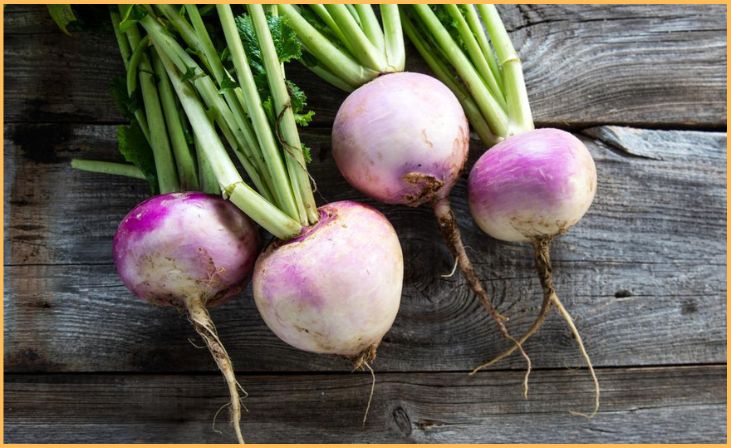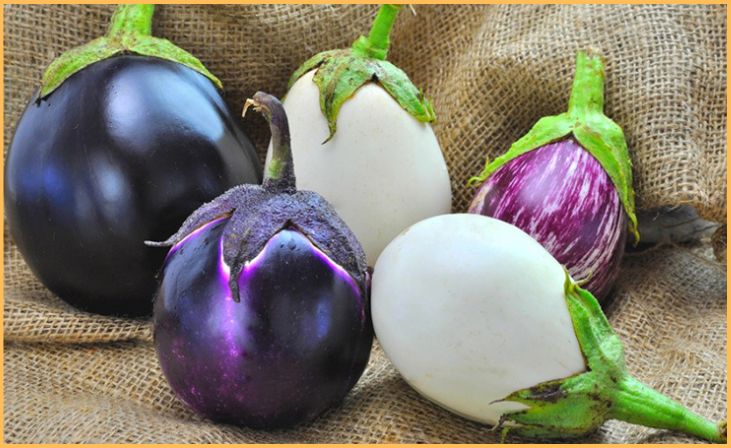When it comes to maintaining a healthy diet, vegetables play a vital role in providing essential nutrients and supporting overall well-being. Nutritionists emphasize the importance of incorporating a variety of colorful and nutrient-rich vegetables into your meals. In this article, we’ll introduce you to the top 10 nutritious vegetables recommended by nutritionists. These vegetables are not only packed with vitamins, minerals, and antioxidants but also offer a range of health benefits that contribute to your overall vitality.
Vegetables are a cornerstone of a balanced diet, offering an array of vitamins, minerals, and antioxidants that promote health and vitality. Nutritionists often recommend including a variety of vegetables in your meals to ensure you’re receiving a diverse range of nutrients.
Best of the Nutritious Vegetables
A healthier lifestyle often begins with the choices we make in our daily diet, and incorporating a variety of nutrient-rich vegetables is a key aspect. Nutritionists, with their expertise in the field, consistently recommend certain vegetables for their exceptional nutritional profiles.
Quick Link: 8 Vegetables That Aren’t As Nutritious As You Think
Carrots

Carrots, recognized by their vibrant orange color, boast a nutritional profile that extends far beyond their appealing appearance. These root vegetables are a rich source of beta-carotene, a precursor to vitamin A crucial for maintaining healthy vision. Beyond eye health, carrots contribute to overall well-being by providing essential vitamins such as K and C, known for their roles in blood clotting and immune system support, respectively. Additionally, carrots bring potassium to the table, promoting heart health, and dietary fiber, aiding in digestion.
The versatility of carrots allows for various culinary applications, from snacking on raw carrot sticks to incorporating them into hearty stews or vibrant salads. With their robust nutrient content and adaptability, carrots stand as a nutritious and flavorful asset, encouraging a wholesome approach to dietary choices.
Broccoli
Broccoli, a prominent member of the cruciferous vegetable family, emerges as a nutritional powerhouse with a wealth of health benefits. Bursting with vitamins, broccoli provides a substantial dose of vitamin C, known for its immune-boosting properties, along with vitamins A and K, supporting vision and bone health. Notably, broccoli contains sulforaphane, a compound linked to potential cancer-fighting properties, adding a layer of protective benefits. Rich in antioxidants like lutein and beta-carotene, broccoli becomes a valuable ally in promoting eye health.
Its versatility in culinary applications, from steamed side dishes to hearty stir-fries, makes it an accessible and nutritious addition to a well-balanced diet. With its impressive nutrient profile and potential health-promoting compounds, broccoli stands as a flavorful and wholesome choice, encouraging individuals to e
Mushrooms

Mushrooms, often revered for their earthy flavor, contribute significantly to overall health through their unique nutrient composition. Serving as a distinctive source of B vitamins, including niacin, riboflavin, and pantothenic acid, mushrooms play vital roles in energy metabolism, cellular function, and the synthesis of essential molecules. Beyond their B vitamin content, mushrooms provide a noteworthy dose of selenium, a crucial mineral with potent antioxidant properties. This antioxidant activity contributes to cellular protection and helps combat oxidative stress.
Incorporating mushrooms into your diet introduces these essential nutrients, offering a delicious and versatile option for various culinary creations, from savory sautés to hearty soups. With their distinct nutrient profile, mushrooms stand as a valuable addition to a well-balanced diet, promoting both flavor and nutritional benefits for overall well-being.
Kale
Kale, a verdant gem in the realm of leafy greens, earns its reputation as a nutritional powerhouse, delivering a spectrum of essential nutrients. Rich in vitamins, kale provides a robust combination of vitamin A for vision, B6 for metabolism, vitamin C for immune support, and vitamin K for bone health and blood clotting. The mineral bounty within kale includes potassium, crucial for heart health, and a trifecta of calcium, copper, and magnesium, supporting bone strength and various physiological processes.
Beyond its nutrient density, kale’s versatility allows it to shine in salads, smoothies, or as a nutritious side dish, making it a go-to choice for those seeking a nutrient-packed addition to their diet. With its impressive nutrient profile, kale stands as a green powerhouse, offering both flavor and a myriad of health benefits for those embracing its culinary versatility.
Turnips

Despite not always being in the spotlight, turnips emerge as a hidden nutritional gem, making a substantial contribution to a well-rounded diet. These root vegetables pack a punch of dietary fiber, promoting digestive health and providing a sense of fullness. Beyond their fibrous content, turnips deliver a range of essential micronutrients, including vitamin C for immune support, folate crucial for cell division, and potassium supporting heart health.
Incorporating turnips into meals introduces a layer of nutritional diversity, enhancing the overall micronutrient profile of the diet. Their adaptability in culinary applications, from roasted side dishes to comforting stews, allows turnips to shine both in flavor and nutritional benefits. With their rich array of fiber and micronutrients, turnips prove to be a valuable ally in promoting overall health and well-being for those who explore their culinary potential.
Also Read: 9 Best High-Fiber Vegetables—Ranked!
Bell Peppers
Bell peppers, with their vibrant array of colors, stand as not only a culinary delight but also a nutritional powerhouse. Packed with vitamins A and C, these peppers become key players in supporting immune function and promoting radiant skin health. The variety they offer extends beyond vitamins, encompassing potassium for heart health, dietary fiber for digestive well-being, and bioactive compounds boasting antioxidant properties. These antioxidants play a pivotal role in combatting oxidative stress, contributing to overall cellular protection.
The versatility of bell peppers in the kitchen, whether in salads, stir-fries, or as crunchy snacks, makes them an accessible and flavorful way to incorporate essential nutrients into the diet. With their impressive nutrient profile, bell peppers become more than just a colorful addition – they are a delectable source of health-promoting compounds for those seeking both taste and wellness in their meals.
Eggplant

Eggplants, with their distinctive flavor and adaptable texture, carve a niche as a versatile ingredient enriching a myriad of dishes. Beyond their culinary charm, eggplants harbor compounds that hold promise in contributing to heart health. Rich in dietary fiber, eggplants promote digestive well-being and provide a sense of satiety. Additionally, they contain nasunin, an antioxidant found in the purple skin, which may contribute to cellular protection.
Whether grilled, roasted, or incorporated into savory stews, eggplants not only add depth to flavors but also introduce a spectrum of nutrients. Their culinary flexibility and potential health benefits position eggplants as more than just a delightful addition to meals—they stand as a flavorful and nutritious choice for those seeking both culinary creativity and well-rounded wellness on their plate.
Cauliflower
Cauliflower has rightfully earned its culinary spotlight, celebrated for both its adaptability in recipes and its notable nutrient richness. Bursting with a range of vitamins, including vitamin C for immune support, vitamin K for bone health, B6 for metabolism, and folate for cellular function, cauliflower stands out as a nutrient-packed vegetable. It doesn’t stop there—this cruciferous gem also provides essential minerals like potassium, vital for heart health, and boasts plant-based omega-3s, contributing to overall well-being.
Whether roasted, mashed, or transformed into cauliflower rice, its versatility in the kitchen makes it a trendy choice for health-conscious individuals. Beyond its culinary appeal, cauliflower becomes a go-to vegetable for those seeking a trendy yet nutritious addition to their meals, offering a combination of flavor and health benefits in each bite.
Green Beans

Green beans, celebrated for their delectable taste and crisp texture, go beyond culinary delight to offer a host of nutritional benefits. These vibrant beans are a noteworthy source of dietary fiber, promoting digestive health and contributing to a sense of fullness. Rich in vitamins, green beans provide a trifecta of A for vision, C for immune support, and K for bone health. What sets them apart is the presence of chlorophyll, a potent antioxidant found in their green hue, which plays a pivotal role in supporting overall health.
Whether steamed, sautéed, or incorporated into salads, green beans stand as a flavorful and nutritious addition to meals, combining taste and health in every bite. With their nutrient-rich profile and antioxidant properties, green beans become a culinary ally for those embracing both flavor and well-being in their dietary choices.
Tomatoes
Tomatoes, renowned for their vibrant red hue and succulent taste, bring more than just flavor to the table—they offer a wealth of health benefits. The standout compound is lycopene, a potent antioxidant abundant in tomatoes, known for its association with supporting vascular function and potentially reducing the risk of cardiovascular disease. Research suggests that cooking tomatoes may enhance the bioavailability of lycopene, making it more easily absorbed by the body. Beyond its cardiovascular perks, lycopene is also celebrated for its potential role in promoting skin health.
Whether sliced in salads, blended into sauces, or enjoyed as a refreshing snack, tomatoes prove to be a versatile and nutritious addition to a well-balanced diet, delivering both taste and potential health advantages in every bite.
Also Check: 10 Vegetables That Are Secretly Making You Gain Weight
Incorporating These Nutrient Powerhouses
Unlock the full potential of these nutritious vegetables by seamlessly incorporating them into your daily meals. From vibrant salads to sizzling stir-fries and comforting soups, the culinary possibilities are vast.
Embrace creativity in your kitchen as you experiment with diverse cooking methods, unveiling a symphony of flavors and textures that cater to your unique palate. Whether roasted to perfection, sautéed for a crisp finish, or blended into hearty stews, these vegetables offer a canvas for culinary exploration.
Explore the artistry of combining colors, tastes, and nutritional benefits, making each meal a delightful and healthful experience. By infusing variety into your cooking routine, you not only enhance the nutritional content of your dishes but also cultivate a deeper appreciation for the diverse array of flavors that these vegetables bring to the table.
So, let your culinary curiosity flourish, transforming every meal into a nourishing and enjoyable adventure.
Balancing Your Vegetable Intake
While the featured 10 vegetables stand as nutritional powerhouses, it’s crucial to recognize that diversity is the cornerstone of a well-rounded diet. Aim for a kaleidoscope of colors on your plate by incorporating an array of vegetables, each offering a unique set of vitamins, minerals, and phytonutrients. This diversity not only ensures a broader spectrum of health benefits but also helps address nutritional gaps that may arise from relying solely on specific vegetables. From the vibrant reds of tomatoes to the deep greens of leafy varieties, the colors reflect the array of nutrients within.
Embracing this variety not only elevates the sensory experience of meals but also promotes overall health and vitality. So, let your plate become a canvas of colors, showcasing the rich tapestry of nutrients that nature provides, and in doing so, cultivate a nourishing and balanced approach to your dietary habits.
Adding these top 10 nutritious vegetables to your diet is a flavorful and health-conscious choice. Whether you’re seeking vitamins, antioxidants, or fiber, these vegetables offer an abundance of benefits that contribute to your overall well-being.
Final Thoughts
In conclusion, the top 10 nutritious vegetables recommended by nutritionists serve as a treasure trove of essential nutrients, each playing a vital role in supporting various aspects of health. From leafy greens rich in vitamins to colorful bell peppers packed with antioxidants, these vegetables offer a diverse array of benefits. Incorporating these nutritional powerhouses into your daily meals provides a foundation for a balanced and health-conscious diet. Whether consumed raw, steamed, or incorporated into delicious recipes, these vegetables offer a delicious and effective way to enhance your overall well-being.
FAQs
You can enjoy these vegetables in salads, stir-fries, soups, or as side dishes. Experiment with different cooking methods to find what suits your taste.
Absolutely. These vegetables are versatile and can be adapted to various dietary preferences, making them suitable for everyone.
Yes, many of these vegetables are low in calories and high in fiber, making them excellent choices for those focusing on weight management.
Light cooking methods like steaming or sautéing are recommended to retain the maximum nutritional content of these vegetables. However, incorporating a variety of preparation methods is ideal for a well-rounded diet.







